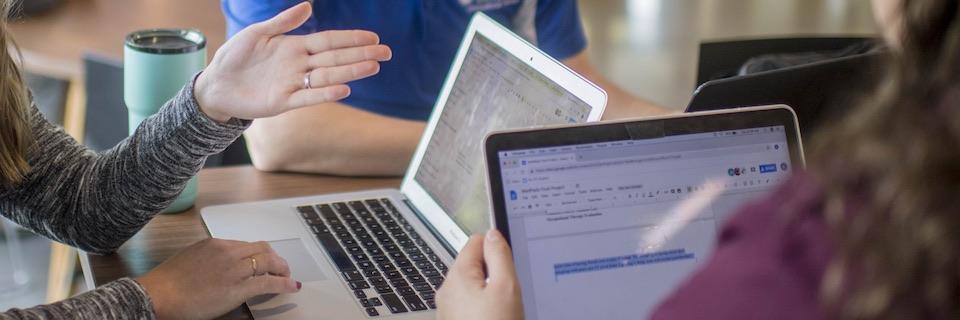Faculty, Alumnus Team Up for College Mental Health Site

For so many students at all levels, mental illness is a daily struggle affecting all aspects of their lives. A Rockhurst University faculty member and an alumnus have recently teamed up to do something about it.
Risa Stein, Ph.D., University professor of psychology, knows the struggle not only as a faculty member, but as the advisor to Rockhurst’s Active Minds chapter, a student organization founded to help reduce the stigma surrounding mental illness, and through the headlines and stories from her own children and others about the profound tragedies that can result from mental illness.
“In 2016, I created a workshop for high school students focused on designing solutions to mental health and I heard a lot about what they were experiencing. It sounded way more difficult than I ever imagined,” she said. “It was overwhelming, keeping me up at night.”
Stein said she had an idea of how to help, but knew she couldn’t do it alone. Through a class at the Helzberg School of Management Stein met Matthew Barksdale, ’04 EMBA, founder and managing director of ZagFirst digital marketing and a longtime Kansas City tech entrepreneur.
Currently, the pair are collaborating on a new resource aimed specifically at helping college students cope with mental illness’s wide-reaching impact. GenuineU is a web-based platform for students to share short video testimonials about their experience with mental illness with others.
“We both bring different things to the table, and we’re using that expertise to solve this epidemic,” Barksdale said. “We hope this will grow, but if we can impact even one person, it will be worth it.”
This week the pair launched a Kickstarter campaign to help raise the funds to build out the site’s functionality and grow its reach in the future.
For privacy and for safety, each GenU video is reviewed before it’s posted, and students cannot directly communicate with each other, though the system allows faculty, staff, students and friends to send anonymous notes of support to those in need — something Stein said can be especially important during the winter break when students are away from the campus community. But the hope is that the site does become its own unique ecosystem. Stein said she sees GenU as a tool to build a community conversation around mental health from the bottom up, not necessarily relying solely on experts.
“It can be empowering to share your story and breaking down those perspectives everyone has about mental illness,” she said. “Especially at a Jesuit University, where kids are committed to service and ‘cura personalis (care for the whole person),’ it gives them this sense that by sharing, they are giving back and helping someone else.”
For students who feel they are alone, or are not ready to seek other resources, seeing a story similar to their own can make a difference.
“There are three big things we’re trying to break through — we want to remind these students that others have been down this path, that they are not alone, and show that others have successfully come out the other end, and that they can too,” Barksdale said.







